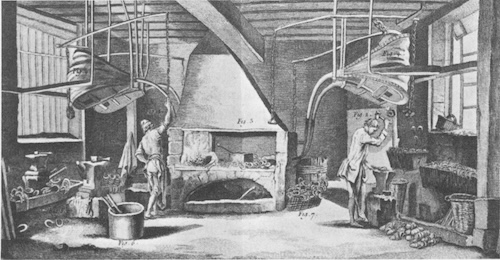Colonial towns and villages relied on skilled workers called tradespeople. These men and women had training in specific jobs like blacksmithing, carpentry, shoemaking, tailoring, and printing. Their work was essential to daily life and helped build growing communities.
Daily Life and Responsibilities
Tradespeople typically worked long hours in workshops, either alone or with apprentices. Blacksmiths forged tools, horseshoes, and nails. Carpenters built homes, barns, and furniture. Cobblers repaired and made shoes, while tailors sewed and altered clothing. In cities, printers ran presses that produced newspapers, pamphlets, and books.
Some tradespeople worked for wealthier colonists, while others owned their own shops. In many towns, the same building was used as a home, workshop, and storefront. Family members often helped with the business, including wives and children.
Limitations and Challenges
Tradespeople were not as wealthy or powerful as large landowners or merchants, but they were respected in their communities. Learning a trade usually required years of training. Boys often became apprentices in their early teens and worked for free in exchange for room, board, and instruction.
Trade work could be unpredictable. If tools broke, supplies ran out, or business slowed, families might struggle. Tradespeople had limited legal or political power, especially if they were not landowners. In cities, competition for work and space could lead to conflicts with other trades or groups.
Free Black tradespeople and women in trades faced additional barriers. Though some became skilled workers, they had fewer rights and opportunities to grow their businesses.

Contributions to Colonial Society Tradespeople helped build the physical and economic foundation of colonial life. Without their skills, communities could not grow. They made the tools used by farmers, built homes and churches, and provided goods needed by everyone.
Many also supported the spread of ideas. Printers published news and political writings that helped connect the colonies and shape debates. Some tradespeople became community leaders or participated in early protests against British rule.
While they may not have owned large amounts of land, tradespeople were essential to the success and survival of the colonies.
